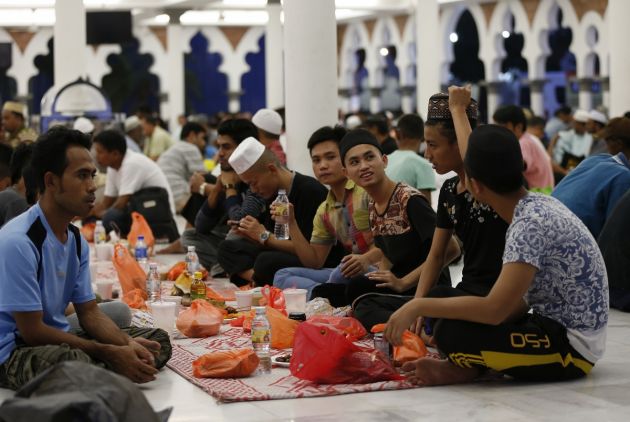Holy month of Ramadan in 2016 scarred by terror attacks in Muslim areas

The holy month of Ramadan was ending around July 6, when more than 1.6 billion Muslims around the world celebrate the end of the fasting month with the festival of Eid-el-Fitri.
Fasting during Ramadan is one of the five pillars of Islam and during the month, Muslims fast during daylight hours, when they are not allowed to eat or drink at all.
A single sip of water is considered enough to annul the fast
This year Ramadan was marked by violence in a series of terrorist attacks, some of which were carried out in the name of Islam, at several areas dominated by Muslims.
Ramadan falls during the ninth month of the Islamic calendar and it is an especially sacred time for Muslims who believe that during the month the Quran was revealed to mankind through the Prophet Muhammad.
On July 5, however, a suicide attack outside the Saudi city of Medina - the resting place of Muhammad and the second-most holy site in Islam in which four security officers were killed and five others injured, Quartz reported.
The Medina bombing stands out, even among the wave of terrorist attacks in recent days, but not for the death toll.
It did not produce the scenes of carnage like the bombing two day before in Baghdad that killed nearly 200 people or last week's attack on the airport in Istanbul that left 44 dead, NPR said.
It was the chosen target - Medina, the site of the Muslim Prophet Muhammad's tomb and his house.
"It's not like a Shiite shrine or a Sunni shrine," says Jonathan A.C. Brown, the Prince Alwaleed bin Talal Chair of Islamic Civilization at Georgetown University. "This is literally the burial place of the prophet of God. This is his mosque, this is his house."
MEDINA SECOND ONLY TO MECCA
Medina is second only to Mecca in its sacredness in Islam, Brown explains. It's the place where Muhammad lived, where he started the Muslim community and where he was laid to rest.
The Baghdad atrocity in turn was preceded on July 1, when at least 20 people were killed by gunmen in the Bangladeshi capital of Dhaka after a 10-hour-long hostage situation at an upmarket cafe in the city.
According to reports, the gunmen asked hostages to recite verses from the Quran and those who failed to do so were killed.
The terrorist group callings itself ISIS, IS or known as Daesh ISIS had promised Ramadan would be a "month of pain for infidels," the Daily Mail reported.
On June 28 terrorists claiming to be from ISIS carried out a brutal attack on the Istanbul international airport which resulted in the deaths of at least 45 people.
With the number of people murdered by the extremists in the last four weeks now close to 1,000, spanning from a gun attack in Orlando to executions in the Philippines and mass murders in Iraq, it appears they have delivered.
But it is "fellow Muslims who have suffered the most at the hands of ISIS's warped followers" the newspaper commented.
"Using sacred Islam's name, exploiting it, this terrorist group which spills Muslim blood has gone as far as attacking the town where the mosque and blessed remains of our Prophet are located," President Recep Erdogan said in a speech on July 5, the day before Ramadan came to an end.
"Daesh is a dagger plunged into the chest of Muslims. Whoever gives support to this group, whether out of sectarian fanaticism or another motive, commits the same sin"' he noted, using the Arabic acronym for Islamic State.
Muslims still tried to go about celebrating the end of the Ramadan period of fasting in the normal manner with special feast and gift sharing.
The Nigerian government said it was extending the Eid-el-Fitri holiday, the timing of which is dependent on the moon, by one day due to the non-sighting of the moon.
In Indonesia, the world's most populous Muslim country, thousands of people attended prayers at the grand mosque of Dian al-Mahri in West Java province, Reuters news agency reported.
In Karachi, Pakistan, the festival was observed under tight security, with police as well as soldiers deployed around special Eid prayer grounds.
Afghan President Ashraf Ghani called for peace in his war-torn country at an official gathering at the presidential palace in Kabul.
Muslims in Kashmir and in India's southern state of Kerala ushered in festivities a day ahead of nationwide celebrations July 7. Muslims traditionally shop on the eve of Eid for new clothes and food.
Muslims in Columbus, Ohio celebrated Eid al-Fitr by helping needy families.